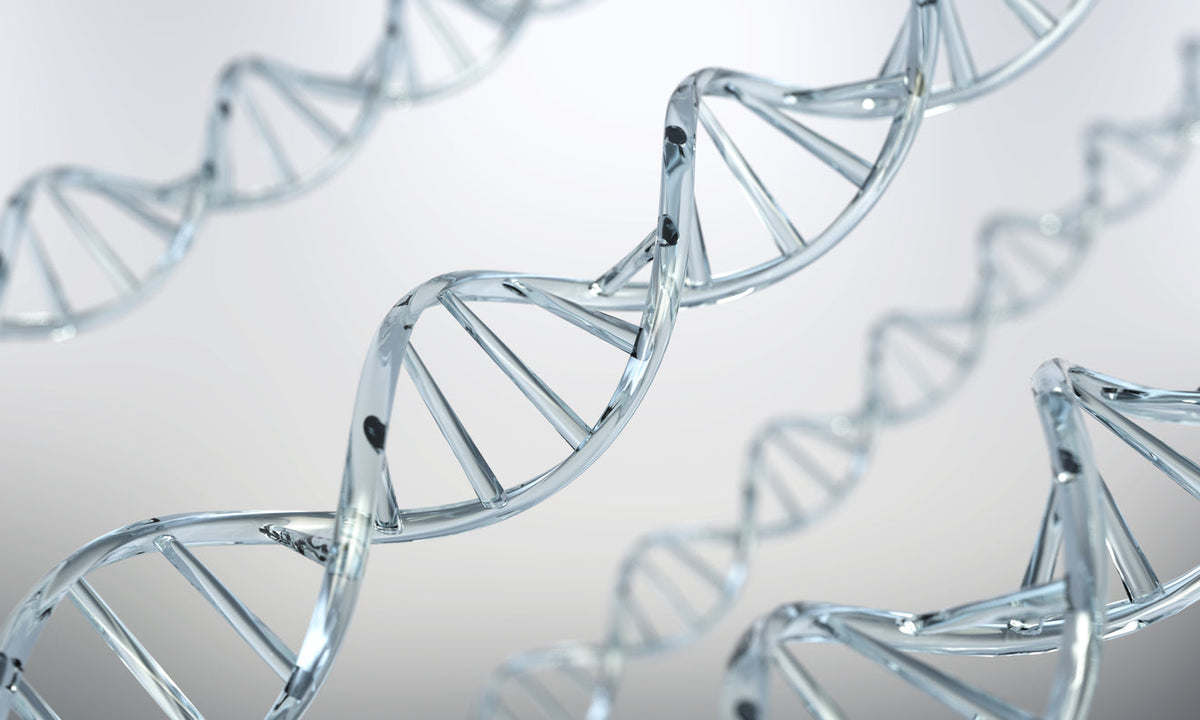
How Collagen Benefits Your Face and Body
|
FREE Shipping over $50 SHOP NOW
|
A good level of collagen production is essential for smooth, younger looking skin.
The fibrous protein:
It’s why we love it so much!
And collagen defines how your body ages and recovers too.
Playing an important role in:
The more collagen you have, the firmer and younger your skin will look.
It’s the protein responsible for giving your skin structure. And it does this in several ways:
Collagen firms your skin - Collagen helps form a fibrous network of cells in the dermis, the middle layer of skin’s structure. These are called fibroblasts and they’re what gives firmness and support to your skin.
Improves elasticity - Collagen works alongside another key protein in the skin, elastin. Elastin gives your skin flexibility so that it bounces back after facial movements and helps it to remain plump.
Regenerates skin cells - Collagen helps the skin to naturally renew , shedding old skin cells to allow new healthier ones to grow. It’s this that gives your skin a healthy glow.
Boosts hydration - Collagen encourages the production of Hyaluronic Acid, which increases the moisture in your skin .
FIRM UP SUPERPOWDER - HYDROLYZED
To support glowing skin, healthy hair and strong muscles
An essential supplement to maintain a healthy level of collagen in the body and support healthy aging.
As one of the main proteins in your body, collagen provides structural support for connective tissue, bones and cartilage.
Collagen is an important component of skeletal muscle and studies indicate that collagen supplements help boost muscle mass.
Research suggests that taking collagen supplements may promote the synthesis of muscle proteins (such as creatine) as well as stimulate muscle growth after exercise.
Collagen helps maintain the integrity of your cartilage, the tissue that protects your joints.
As we age the amount of collagen in our body decreases, putting us at risk of degenerative joint problems.
Researchers think that taking collagen supplements can lessen the chances of this happening by lowering inflammation, giving better joint support, and reducing overall joint pain.
With studies showing that collagen supplementation led to significant improvements in joint stiffness.
Collagen contains a protein called glycine, which plays an important role in our sleep patterns.
Researchers found that consuming extra collagen (around 15g) people fell asleep more quickly, slept more deeply and slept for longer.
The reason is down to the two primary factors that affect sleep - body temperature and serotonin levels.
Glycine helps to lower the body temperature so we can fall asleep quicker - and stay asleep longer.
It also helps our body produce serotonin which in turn produces melatonin, the hormone that helps manage your circadian rhythms.
Collagen is what gives our bones structure and strength. And just as the collagen in our body deteriorates with age, so does bone mass.
Bone Mineral Density (BMD) is a measure of how strong your bones are, with a low BMD associated with an increase in potential fractures.
But one study found that taking 5 grams of collagen daily for 12 months can increase bone mineral density (BMD) by up to 7% compared with those not taking collagen.
So whether by adding collagen-rich foods to your diet, or by taking supplementation, if you want to age healthily it’s worth upping your collagen intake.
What causes collagen levels to go down?
As we age, our bodies naturally make less collagen. And the collagen in the deep skin layers deteriorates, changing from a structured network of fibers to a disorganized jumble.
But lifestyle and dietary factors can cause collagen production to drop more quickly as well. Too much sun exposure, smoking, excess alcohol, and lack of sleep and exercise can all damage collagen fibers reducing their thickness and strength, leading to sagging skin and wrinkles.
Collagen is also broken down by eating a high sugar diet, so you need to keep an eye on that too.
Maintaining a good level of collagen production is essential for aging healthily.
The fibrous protein helps you to look younger:
And collagen affects how your body ages and recovers too:
Increase your collagen intake by prioritising collagen-rich foods in your diet or by taking collagen supplements, or both.
Because your collagen levels will define how you look and feel as you age.
This article is for informational purposes only and does not contain medical advice. As always, please contact your physician or qualified healthcare provider with any questions regarding a medical condition.
References
Choi FD, Sung CT, Juhasz ML, Mesinkovsk NA. Oral Collagen Supplementation: A Systematic Review of Dermatological Applications . J Drugs Dermatol. 2019 Jan 1;18(1):9-16. PMID: 30681787.
Kim DU, Chung HC, Choi J, Sakai Y, Lee BY. Oral Intake of Low-Molecular-Weight Collagen Peptide Improves Hydration, Elasticity, and Wrinkling in Human Skin: A Randomized, Double-Blind, Placebo-Controlled Study. Nutrients. 2018 Jun 26;10(7):826. doi: 10.3390/nu10070826. PMID: 29949889; PMCID: PMC6073484.
de Miranda RB, Weimer P, Rossi RC. Effects of hydrolyzed collagen supplementation on skin aging: a systematic review and meta-analysis . Int J Dermatol. 2021 Dec;60(12):1449-1461. doi: 10.1111/ijd.15518. Epub 2021 Mar 20. PMID: 33742704.
Khatri M, Naughton RJ, Clifford T, Harper LD, Corr L. The effects of collagen peptide supplementation on body composition, collagen synthesis, and recovery from joint injury and exercise: a systematic review. Amino Acids. 2021 Oct;53(10):1493-1506. doi: 10.1007/s00726-021-03072-x. Epub 2021 Sep 7. PMID: 34491424; PMCID: PMC8521576.
García-Coronado JM, Martínez-Olvera L, Elizondo-Omaña RE, Acosta-Olivo CA, Vilchez-Cavazos F, Simental-Mendía LE, Simental-Mendía M. Effect of collagen supplementation on osteoarthritis symptoms: a meta-analysis of randomized placebo-controlled trials . Int Orthop. 2019 Mar;43(3):531-538. doi: 10.1007/s00264-018-4211-5. Epub 2018 Oct 27. PMID: 30368550.
